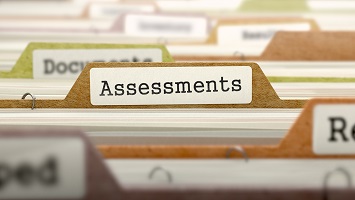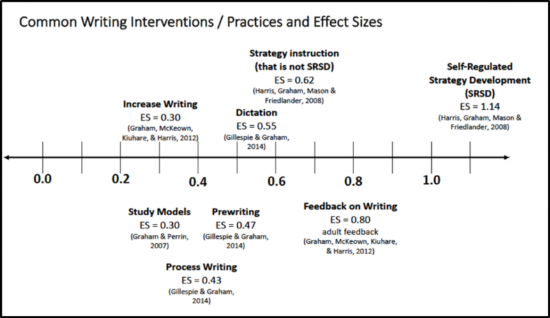





Ask the ‘TASC is a PBIS advice column from the RSE-TASC Specialists
Question: How do you get a ticket system to run productively in the cafeteria?
Response 1:
Sara Fienup,
Behavior Specialist
You can absolutely get an acknowledgement system, such as a ticket system, to run effectively in the cafeteria. First, your team will need to decide which behaviors will be reinforced. Will you reinforce any cafeteria behaviors from your matrix? Or are there certain behaviors that could use some improvement? Common cafeteria behaviors to target include using appropriate voice volume; raising hand for assistance; keeping hands, feet, and objects to self; getting all necessary materials the first time; and staying seated.
Next comes the fun part. How will the targeted behaviors be reinforced? The least resource-intensive way is to extend your school-wide ticket system into the cafeteria, which means that the adults provide a ticket and labeled praise to students that engage in the targeted behaviors. Labeled praise should sound something like, “I noticed you got all your food and utensils the first time through the line, that’s being responsible” or “Thanks for being respectful and keeping a voice volume of 3.” If students have difficulty keeping their tickets until they get to class, tickets can be put into containers organized by class or grade. As soon as the container is full, that class or grade receives a reward.
Another option is to utilize a group contingency such that tables or classes compete to earn reinforcers. For example, the lead cafeteria monitor evaluates the classes based on a particular cafeteria behavior (remember to be specific about which behaviors earn reinforcement). At the end of the lunch period, the two classes that best exhibit that behavior receive a paper “award,” which is posted on the bulletin board near the cafeteria. The two classes that receive the most awards at the end of the 6-week period earn a special trip or party. PBIS.org provides an example of how one elementary school did this at this link.
Another group contingency option includes providing frequent feedback to students using colored cups. Students sit at tables by homerooms and adults place a green, yellow, or red plastic cup on each table to provide feedback to students on their behavior. Green cups mean student behavior meets expectations. Yellow cups serve as a warning and are soon changed to either green or red cups. Red cups mean behavior is not meeting expectations. Adults record an R or G on daily data sheets to summarize each table’s behavior during that day’s lunch period. A chart of each table’s total green marks is posted in the cafeteria and is updated daily. Public acknowledgement and a reward is provided for tables that received a green tally all 5 days of the week. At the end of the month, tables that received green tallies every day attend a pizza party. This link provides an example of an urban elementary school reduced its behavior problems in the cafeteria with this strategy.
Whatever methods you choose for your acknowledgement system, be sure to train staff on the “Why” and “How” of the system and to provide frequent feedback, both positive and constructive. I’ve found that when lunch monitors are empowered, they rise to the occasion.
Response 2:
Fran Fernandez,
Non District School Improvement Specialist
When implementing anything new, the PBIS Team and/or committee should consider the logistics of how it will be done. When it comes to using a ticket system you want to consider:
- what behavior or behaviors will earn a ticket
- what the tickets will look like
- where extra tickets will be held
- where students will put tickets
- what should staff say/ do when they give a ticket to a student
- what behavior you are looking to decrease
As a team, you want to anticipate any challenges that could come up in the location in which the tickets are being distributed. In the cafeteria, there is food and a lot of students. The PBIS team should determine how they can use active supervision (scan, walk, talk) and distribute ticket acknowledgements for positive behavior efficiently in such a busy environment.
Lunchroom monitors should absolutely be included in the planning. Set up a focus group during professional development time and use their experience and knowledge to inform your school’s acknowledgement system. During this time, you could consider inviting monitors to join the PBIS team, to ensure all stakeholders are represented. Logistics can be worked out with this group and brought to the PBIS team for a final plan.
If you have a question you would like us to answer, please email your question to Dale Langley at dlangley@pnwboces.org with the subject line “Ask the ‘TASC”


 Data-Driven Decision-Making
Data-Driven Decision-Making  Increasing Post-School Success through Interagency Collaboration
Increasing Post-School Success through Interagency Collaboration  How Can We Improve Deeper Learning for Students with Disabilities?
How Can We Improve Deeper Learning for Students with Disabilities?  Positive Classroom Management: Creating an Environment for Learning
Positive Classroom Management: Creating an Environment for Learning  Self-Determination Skills Empower Students of All Ages
Self-Determination Skills Empower Students of All Ages  Fidelity of Implementation: What is it and Why does it Matter?
Fidelity of Implementation: What is it and Why does it Matter?  Rethinking Classroom Assessment
Rethinking Classroom Assessment  A Three-Step Approach to Identifying Developmentally Appropriate Practices
A Three-Step Approach to Identifying Developmentally Appropriate Practices  Transforming Evidence-Based Practices into Usable Innovations: A Case Study with SRSD
Transforming Evidence-Based Practices into Usable Innovations: A Case Study with SRSD